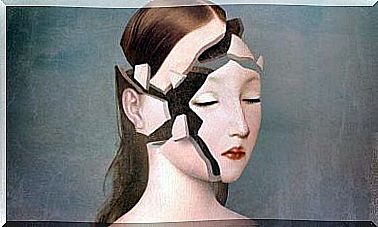What Is Overcompensation In Psychology?

Alfred Adler developed individual psychology and highlighted the innate human need to overcome difficulties and to actualize ourselves. This author pointed out that our most powerful motivation stems from a feeling of inferiority born in childhood that we try to overcome using various defense mechanisms, including overcompensation.
As is often the case in psychological disorders, these mechanisms are useful and functional during childhood. However, if they continue to be used in adulthood, when environmental conditions have changed, they can cause problems.

The feeling of inferiority
It is during the first five years of life when the foundations of an individual’s personality are established. During this time, one of Adler’s most important phenomena takes place: the feeling of inferiority develops.
Indeed, when we are children we all depend on the care of our caregivers to survive. We understand, then, that there are more valid and capable people than us. And we begin to feel fragile, insufficient and, ultimately, inferior.
However, it will be the education and treatment we receive from adults that will help us overcome or magnify this feeling. If the child is not treated as an equal, if he is overprotected or, on the contrary, the victim of excessive authoritarianism, he will not learn to fend for himself. And, therefore, they do not develop enough confidence to function in society in a healthy way. The feeling of inferiority has taken hold.
However, it is important to note that it is, more than anything, a subjective perception. Although having a physical disability or a certain lack of skills can influence, it is mainly the perception that each one has of himself that is decisive.
Once this uncomfortable feeling has settled in, the child starts various coping mechanisms to protect his physical and psychological integrity. It would be the one that was most useful to him in his childhood environment, the one that would become part of his adult personality.
Overcompensation
Overcompensation is one of these defense mechanisms that tries to overcome the feeling of inferiority. It consists of doing the opposite of what, as children, hurt us. Thus, if we were considered weak or insecure, we will try to show great strength and security. If we were considered clumsy or not very capable, we will try to accumulate merits and achievements.
This intolerable feeling of insecurity prevents us from relating in an open and natural way and leads us to perform exaggerated and senseless actions. In short, we counterattack what was a real aggression of children, from an adult position in which it no longer makes sense.
At first glance, overcompensation may seem positive. Trying to overcome your childhood fears and limitations through effort sounds like a good strategy. However, the problem is in excess.
When we consciously try to improve ourselves and work on ourselves, we are compensating. When we are thrown into a spiral of excessive and unconscious behaviors motivated by fear of being inferior, we overcompensate.
It is easy to distinguish those who genuinely strive to improve from those who act out of anguish and fear. Well, in the first case the person arouses sympathy and admiration. Meanwhile, in the second it turns out to be someone vain, pedantic and selfish. They are people who seek domination and prestige.

The key is to make it more flexible
Defense mechanisms are not negative in themselves. Sometimes they are useful for us to maintain our psychological organization. However, when they are used in excess and motivated by a childhood emotional damage they are harmful. Therefore, the objective will be to make them more flexible and adapt them to our current reality.
We will have to identify that feeling of inferiority and work on it in depth so that it stops marking our path. So our desires to improve, improve and succeed will be healthy and adaptive. Our actions will be genuine and will not perpetuate our childish insecurities.
We have to learn to value and appreciate ourselves, to change that subjective feeling of fragility. In this way we can relate socially in a natural way. We will be able to show ourselves as we are, without the need to hide behind security masks and fictitious merits.









